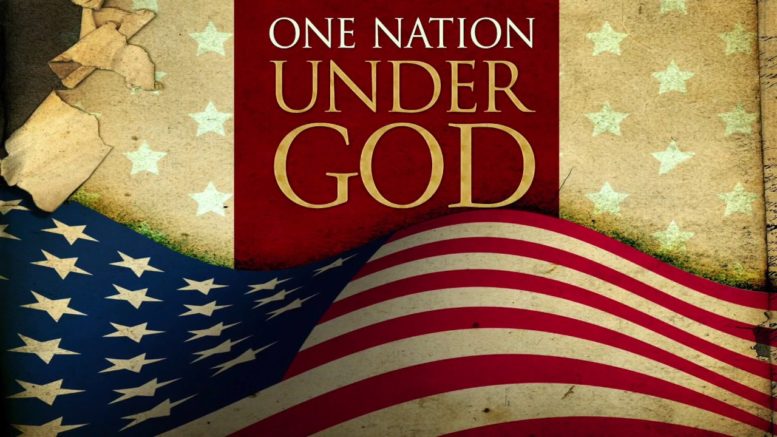There is finally something the other side and I agree upon. But while we both see education as a right, that is also where our agreement ends. They view education as a human right; I see it as a natural right. That difference makes all the difference.
All natural rights come with a corresponding moral duty. That’s a topic we’ll return to in the final article. For today, we’ll briefly look again at who man is, our obligation in regards to education, and what knowledge we are to pass on to the next generation.
Our next Biblical based society principle is,
They recognize the natural right of education, and accept its obligation.
Who Is Man?
In all creation, God created Man alone in His image. While it is a remote image, there is nothing else closer in all creation. Man was also given free will (freedom) to make his own choices. This freedom even allows us to choose whether we accept God. However, we don’t receive the benefit of His gifts to us without that relationship.
This list isn’t comprehensive, but only concerned with a few relevant points. First, we do belong to God. He has called us by name and is with us. (Isa. 43:1-3) It is He who molds us. (Rom. 9:9-21) Second, God created Man to do good. (Eph. 2:10) He gave Man dominion over the earth to care for it until His return (Gen. 1:26-8)
Third, we are all equal by nature and heirs. (Mal. 2:10) We are all to be under the same law without any distinction (Num. 15:15-6 and Rom. 10:12-3) Fourth, we are not slaves, but God’s children. (John 15:15-7 and Gal. 5:13-4) Finally, God calls us to be a single people, His people (1 Peter 2:9-10)
Being a single people goes back to the governance outlined in the last article. We are fallen through sin, but redeemed by God’s grace. For the promise is for you and your children and for all who are far off, as many as the Lord our God will call to Himself. (Acts 2:30)
Education’s Obligation
We are to educate others through our words and deeds. (1 Tim. 4:11-2) Parents are to educate their children in the things of God. (Deut. 6:4-7)
This obligation comes from our natural right not to have our life taken from us. We incur a moral obligation to use it well. We are to do as God asks, out of the same love He’s shown to us. (Matt. 7:24-7) Using our life well, means doing good. Doing good requires building virtue and becoming obedient (Col. 3:12-7 and 1 Tim. 1:8-11)
We are not born with virtue, but Man is adapted for learning and acquiring it. This requires those being educated to both learn and practice. They must see good and bad models of behavior, and the natural outcomes of both. Much of today’s public education corrupts what is good, and compounds that by not showing the consequences of choosing what is bad. This approach damages our children. It’s like taking abortion one step further. We allow our children to be born, but then sacrifice them in life. It must end.
What Knowledge?
There is one simple answer—we are to know God. And this is another of our natural rights. This is the basis for America’s freedom of religion. But once we know God, don’t we have a moral obligation to follow Him? How can it be any other way?
Knowing requires several things: first, understanding knowledge’s source; second, accepting what is taught through belief—faith accompanied with respect and obedience to one’s teacher; and third, testing through practice what is learned, to discern the true from the false. We are to apply this knowing to ourselves, our children, families, and foreigners—in short, to all people.[1] I believe this is one reason why there is so much intolerance today among those on the left. By taking their ideas to their natural end, one will see they are nothing but a corrupt fiction. They fail.
Through our practice and words, we create the seeds for God’s future harvest. (Psalm 78:5-7) So we must therefore walk the talk (Rom. 2:21-3) We cannot know good without knowing God, as God is Good. By knowing Him, we are released from sin’s slavery. So how do we come to know Him? By studying His creation, His word, and understanding ourselves.
Education is about ideas; identifying and keeping the ideas that work—they produce good fruit. Ideas form our choices and decisions. Those determine our actions, and our actions shape our character. Our choices transform us, for both the good and the bad. (2 Cor. 3:17-8 and Rom. 1:28-32) We must therefore choose to do good in service to others. Part of that service is educating our young, so they too may prosper.
This series closes with looking at truth and responsibility.
Shalom
Footnote:
[1] Wolf, Dan, p. 53, A Handbook of Natural Rights, Living Rightly Publications, 2018.




